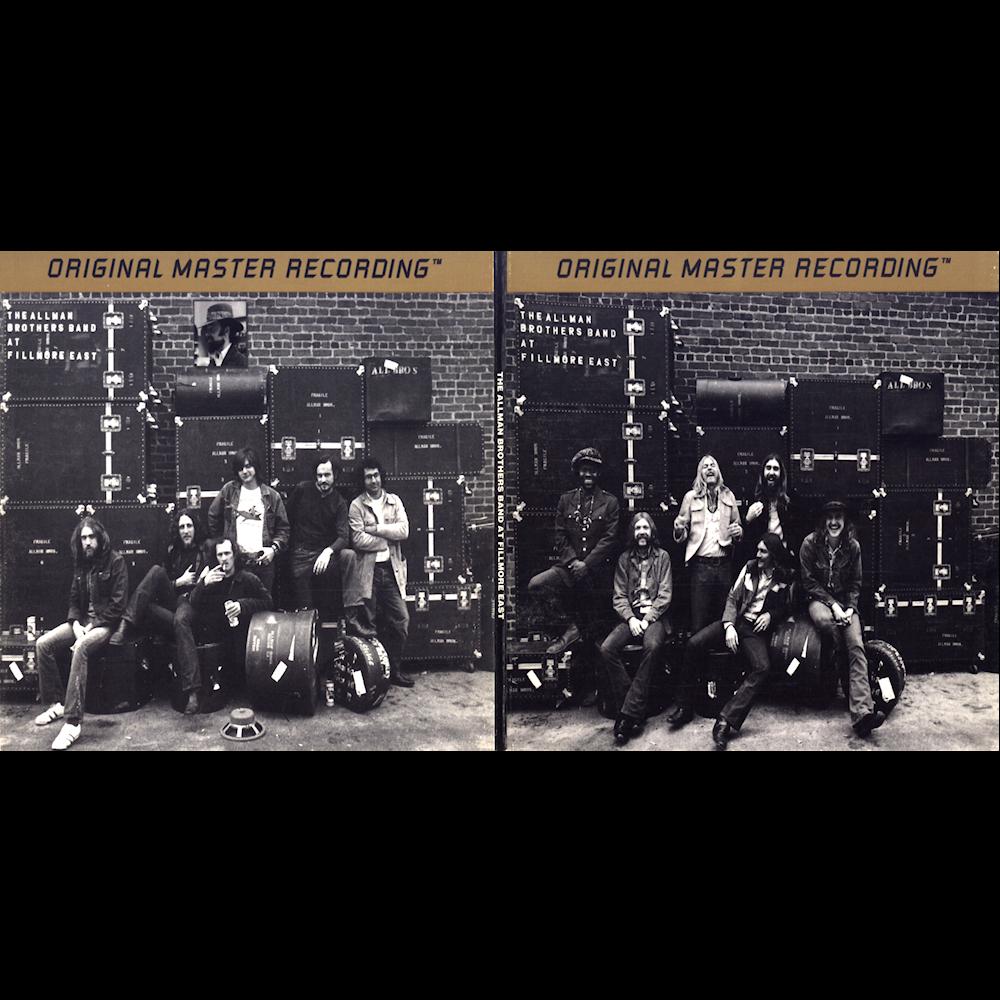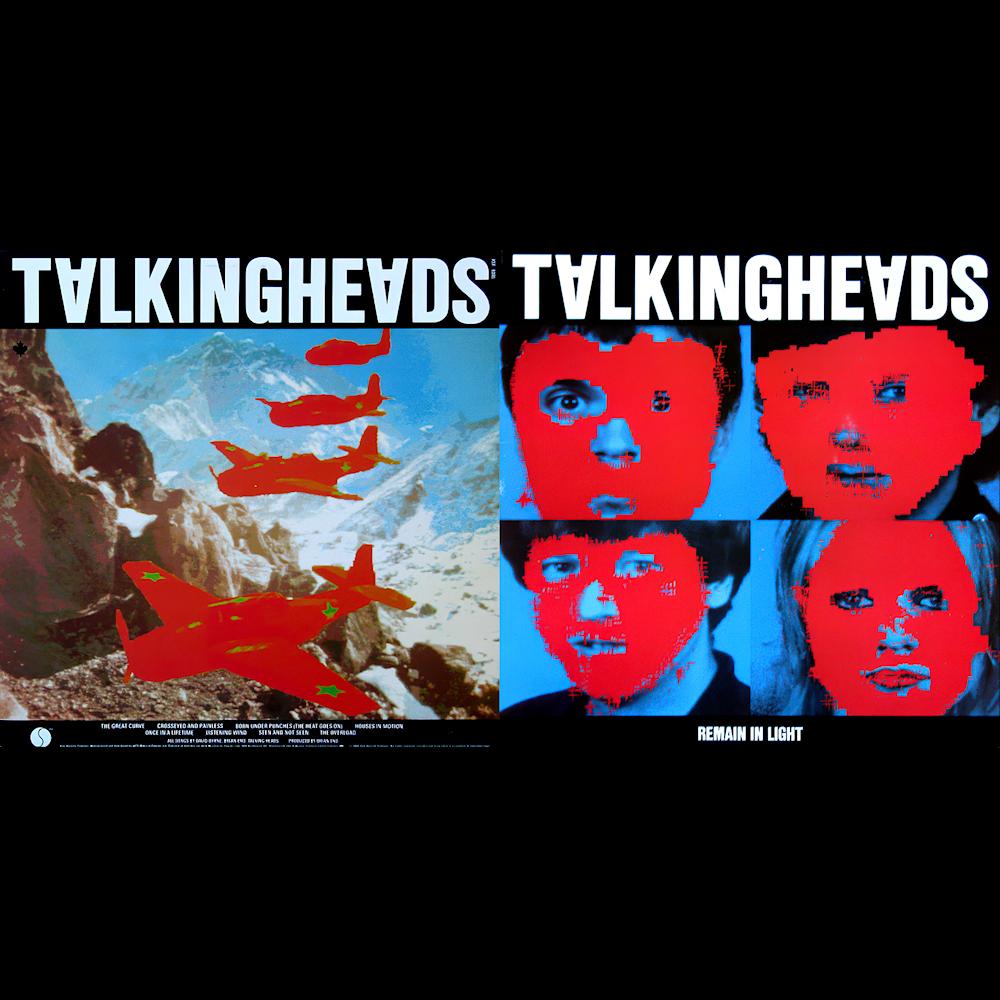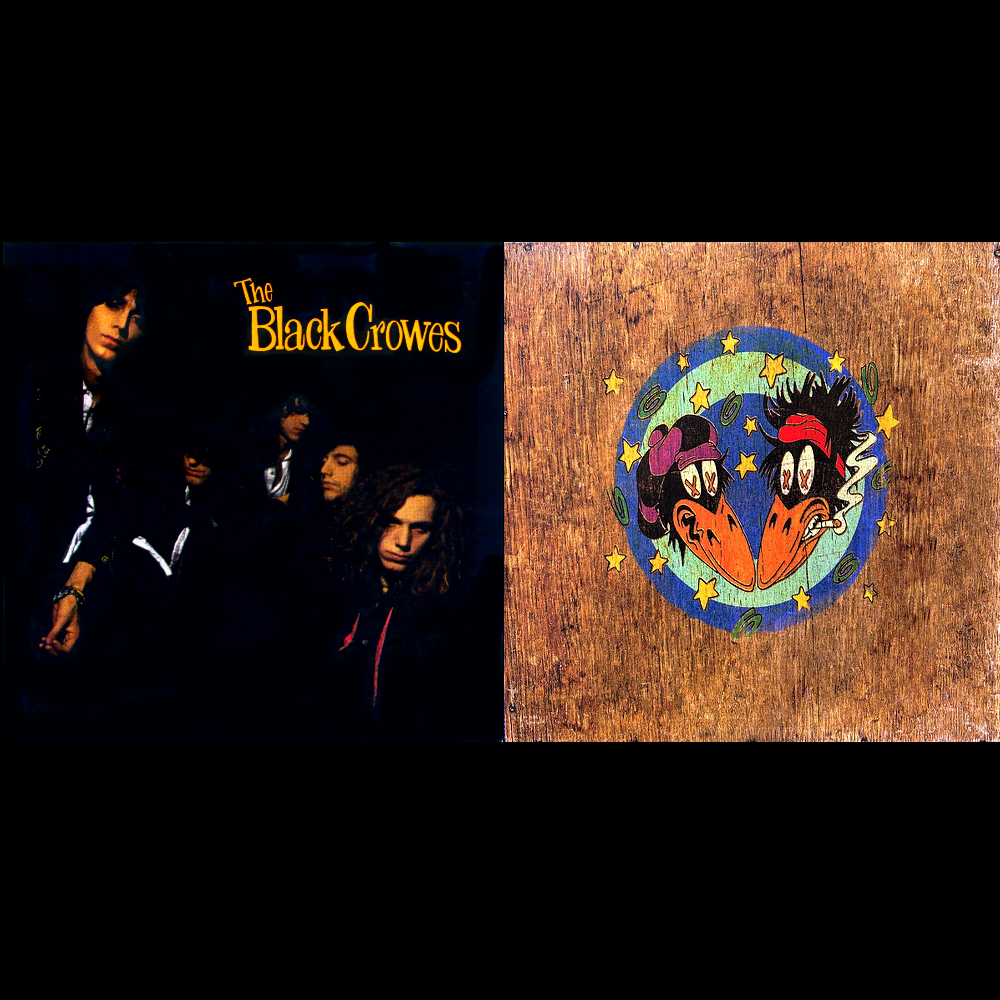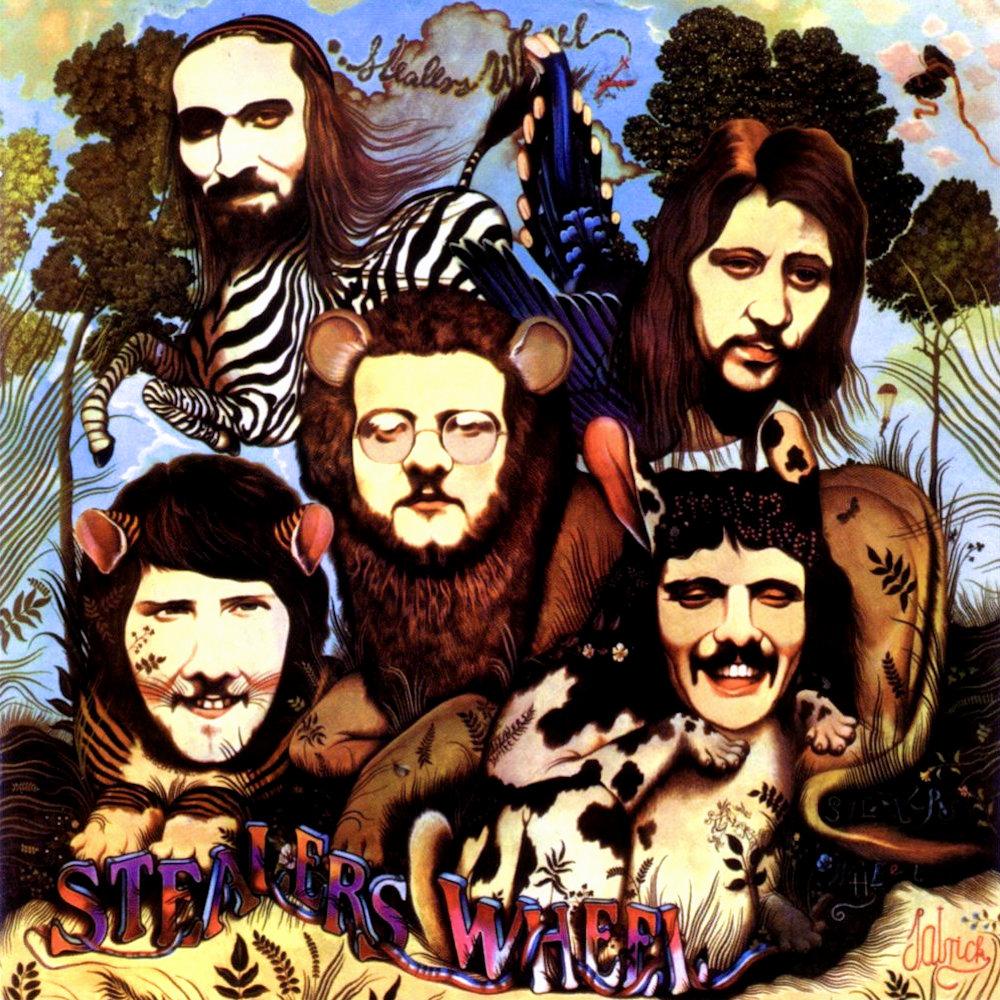
Album Information:
Album ID: 9950
About The Allman Brothers Band:
The Allman Brothers Band was a highly influential American rock band hailing from Macon, Georgia. The band was formed in 1969 by brothers Duane and Gregg Allman, along with Dickey Betts, Berry Oakley, Butch Trucks, and Jaimoe Johanson. The band's initial lineup remained consistent until the tragic deaths of Duane Allman and Oakley in separate motorcycle accidents in 1971 and 1972 respectively.
The Allman Brothers Band garnered a reputation for their fusion of blues, rock, and jazz, earning them a spot in the prestigious Rock and Roll Hall of Fame in 1995. Their unique sound was largely due to the individual members' formidable musicianship, as well as their ability to improvise and play together with remarkable fluidity.
The band's early years were characterized by a grueling touring schedule and the release of seminal albums like The Allman Brothers Band, Idlewild South, and At Fillmore East. These records were marked by extended jams and lengthy instrumental passages, both of which became hallmarks of the band's sound.
Despite the tragic losses of Duane Allman and Oakley, The Allman Brothers Band continued to record and tour throughout the 1970s, releasing classic albums like Brothers and Sisters and Eat a Peach. The band's influence continued to grow and their name became synonymous with the Southern rock movement.
After a period of hiatus in the 1980s, The Allman Brothers Band re-formed with several lineup changes. Throughout the 1990s and early 2000s, the band continued to tour extensively and release new material, including their acclaimed live album An Evening with the Allman Brothers Band: First Set.
Tragically, The Allman Brothers Band played their final show on October 28, 2014, at the Beacon Theatre in New York City. The band's iconic legacy lives on through their music, which continues to inspire new generations of musicians and fans alike.
About the album At Fillmore East:
At Fillmore East is a live double album recorded by the American rock band The Allman Brothers Band. The album was released in July 1971 and was recorded over three nights in March of the same year at the Fillmore East venue in New York City.
The album features a mix of original songs and cover tunes, all of which show off the band's virtuosity and improvisational skills. The opening track, 'Statesboro Blues,' sets the tone for the rest of the album with its driving rhythm and dual lead guitar work.
Throughout the album, the band's signature sound -- a mix of blues, rock, and soul -- is on full display. The extended jams on songs like 'Whipping Post,' 'You Don't Love Me,' and 'In Memory of Elizabeth Reed' showcase the band's ability to stretch out and explore different musical ideas.
The Allman Brothers Band's musicianship is particularly impressive on this album. The interplay between lead guitarists Duane Allman and Dickey Betts is a highlight, and the rhythm section of bassist Berry Oakley, drummer Butch Trucks, and percussionist Jai Johanny Johanson provides a solid foundation for the rest of the band.
The album's sound is raw and unpolished, giving the listener a sense of what it might have been like to see the band perform live in the early 1970s. The audience can be heard throughout the album, cheering and clapping along with the music.
At Fillmore East was a critical and commercial success, and is now widely regarded as one of the greatest live albums in rock history. The album helped popularize the Southern rock genre and cemented The Allman Brothers Band's place in music history.
Members:
The Allman Brothers Band was founded in 1969 in Jacksonville, Florida. Over the course of their career, the band went through several changes in their lineup, but there are several key members who are considered the core of the band. Here is a list of the key members of the Allman Brothers Band along with their biographies:
1. Duane Allman: Duane Allman is widely regarded as one of the greatest guitarists of all time. He was born in Nashville, Tennessee, in 1946 and began playing guitar at a young age. Allman formed his first band, the Allman Joys, in the mid-1960s with his brother, Gregg. In 1969, he formed the Allman Brothers Band, and the group quickly gained popularity with their blend of rock, blues, and jazz. Sadly, Allman died in a motorcycle accident in 1971 at the age of 24.
2. Gregg Allman: Gregg Allman is Duane Allman's older brother and the band's lead vocalist and keyboardist. He was born in Nashville, Tennessee, in 1947 and began playing music in his teens. In 1969, he formed the Allman Brothers Band with Duane and quickly became known for his soulful voice and songwriting skills. Allman passed away in 2017 at the age of 69.
3. Dickey Betts: Dickey Betts was a guitarist and songwriter for the Allman Brothers Band from 1969 to 2000. He was born in West Palm Beach, Florida, in 1943 and began playing guitar as a teenager. Betts joined the Allman Brothers Band in 1969 and quickly became known for his country-infused guitar style and his songwriting contributions to the group. He left the band in 2000 but continues to perform to this day.
4. Berry Oakley: Berry Oakley was the Allman Brothers Band's bassist from 1969 to 1972. He was born in Chicago, Illinois, in 1948 and began playing bass as a teenager. Oakley joined the Allman Brothers Band in 1969 and quickly became known for his powerful playing style. Sadly, he died in a motorcycle accident in 1972, just a few blocks from where Duane Allman had been killed the year before.
5. Jaimoe: Jaimoe, whose real name is Jai Johanny Johanson, is a drummer and percussionist who was a founding member of the Allman Brothers Band. He was born in Ocean Springs, Mississippi, in 1944 and began playing drums as a child. Jaimoe played with several bands in the 1960s before joining the Allman Brothers Band in 1969. He is known for his innovative drumming style and continues to perform to this day.
6. Butch Trucks: Butch Trucks was a drummer for the Allman Brothers Band from 1969 to 2014. He was born in Jacksonville, Florida, in 1947 and began playing drums as a teenager. Trucks joined the Allman Brothers Band in 1969 and quickly became known for his precise drumming style. He was one of the founding members of the band and remained with them until his death in 2017.
Track List for At Fillmore East:
Sure, here's the tracklist for the album At Fillmore East by The Allman Brothers Band, along with play times and descriptions:
Disc 1:
1. 'Statesboro Blues' (4:17): This track kicks off the album with a bluesy classic that showcases the band's tight instrumentation and Duane Allman's impressive slide guitar playing.
2. 'Done Somebody Wrong' (4:33): Another bluesy track that builds on the energy of the opener with Gregg Allman's soulful vocals and Dickey Betts' incendiary guitar solos.
3. 'Stormy Monday' (8:44): A slow-burning blues number that features some of Duane Allman's most emotive and expressive guitar work.
4. 'You Don't Love Me' (19:06): This extended jam showcases the band's improvisational abilities and features impressive solos from each member, including drum and bass interludes in the middle.
Disc 2:
1. 'Hot 'Lanta' (5:17): A funk-infused instrumental that highlights the band's tight rhythms and showcases the interplay between Duane Allman and Dickey Betts' guitars.
2. 'In Memory of Elizabeth Reed' (13:04): A hauntingly beautiful instrumental that blends elements of jazz, rock, and classical music and features some of Duane Allman's most inventive guitar playing.
3. 'Whipping Post' (23:10): The album closes with this epic track that builds from a slow-burning blues into an explosive, hard-rocking finale, with Gregg Allman's anguished vocals and Duane Allman's searing guitar leads stealing the show.
Discography for The Allman Brothers Band:
Here is a complete discography for The Allman Brothers Band in chronological order:
Albums:
1. The Allman Brothers Band - November 4, 1969
2. Idlewild South - September 23, 1970
3. At Fillmore East - July 1971
4. Eat A Peach - February 12, 1972
5. Brothers and Sisters - August 1, 1973
6. Win, Lose or Draw - August 1975
7. Wipe the Windows, Check the Oil, Dollar Gas - November 1976
8. Enlightened Rogues - February 1979
9. Reach for the Sky - August 1980
10. Brothers of the Road - August 1981
11. Seven Turns - July 1990
12. Shades of Two Worlds - July 1991
13. An Evening with the Allman Brothers Band: First Set - November 3, 1992
14. Where It All Begins - May 3, 1994
15. An Evening with the Allman Brothers Band: Second Set - September 13, 1995
16. Peakin' at the Beacon - March 25, 2000
17. Hittin' the Note - March 18, 2003
Live Albums:
1. At Fillmore East (live) - July 1971
2. Wipe the Windows, Check the Oil, Dollar Gas (live) - November 1976
3. An Evening with the Allman Brothers Band: First Set (live) - November 3, 1992
4. An Evening with the Allman Brothers Band: Second Set (live) - September 13, 1995
5. Peakin' at the Beacon (live) - March 25, 2000
Compilations:
1. The Road Goes on Forever - 1975
2. Dreams - July 1989
3. A Decade of Hits 1969–1979 - August 1991
4. 2nd Set - May 13, 1997
5. Mycology: An Anthology - May 25, 1998
6. Essential Collection: The Allman Brothers Band - May 7, 1999
7. Peakin' at the Beacon (DVD) - March 25, 2000
8. The Best of the Allman Brothers Band: 20th Century Masters: The Millennia Collection - November 2, 2004
Singles:
1. 'Black Hearted Woman'/'Every Hungry Woman' - 1969
2. 'Revival'/'Don't Keep Me Wonderin' - 1970
3. 'Midnight Rider'/'Whipping Post' (live) - 1971
4. 'Ain't Wastin' Time No More'/'Melissa' - 1972
5. 'Les Brers in A Minor'/'Melissa' - 1972
6. 'Ramblin' Man'/'Pony Boy' - 1973
7. 'Jessica'/'Come and Go Blues' - 1973
8. 'Win, Lose or Draw'/'Can't Lose What You Never Had' - 1975
9. 'Louisiana Lou and Three Card Monty John'/'Angeline' - 1976
10. 'Crazy Love'/'Can't Take It with You' - 1979
11. 'Can't Take It with You'/'(I'm Your) Hoochie Coochie Man' - 1980
Note: The Allman Brothers Band has released many other live recordings, bootlegs, and other unofficial releases. This discography includes only the major and officially authorized releases.


 Last Played: 11/01/24 08:20 AM
Last Played: 11/01/24 08:20 AM Last Played: 11/01/24 08:17 AM
Last Played: 11/01/24 08:17 AM